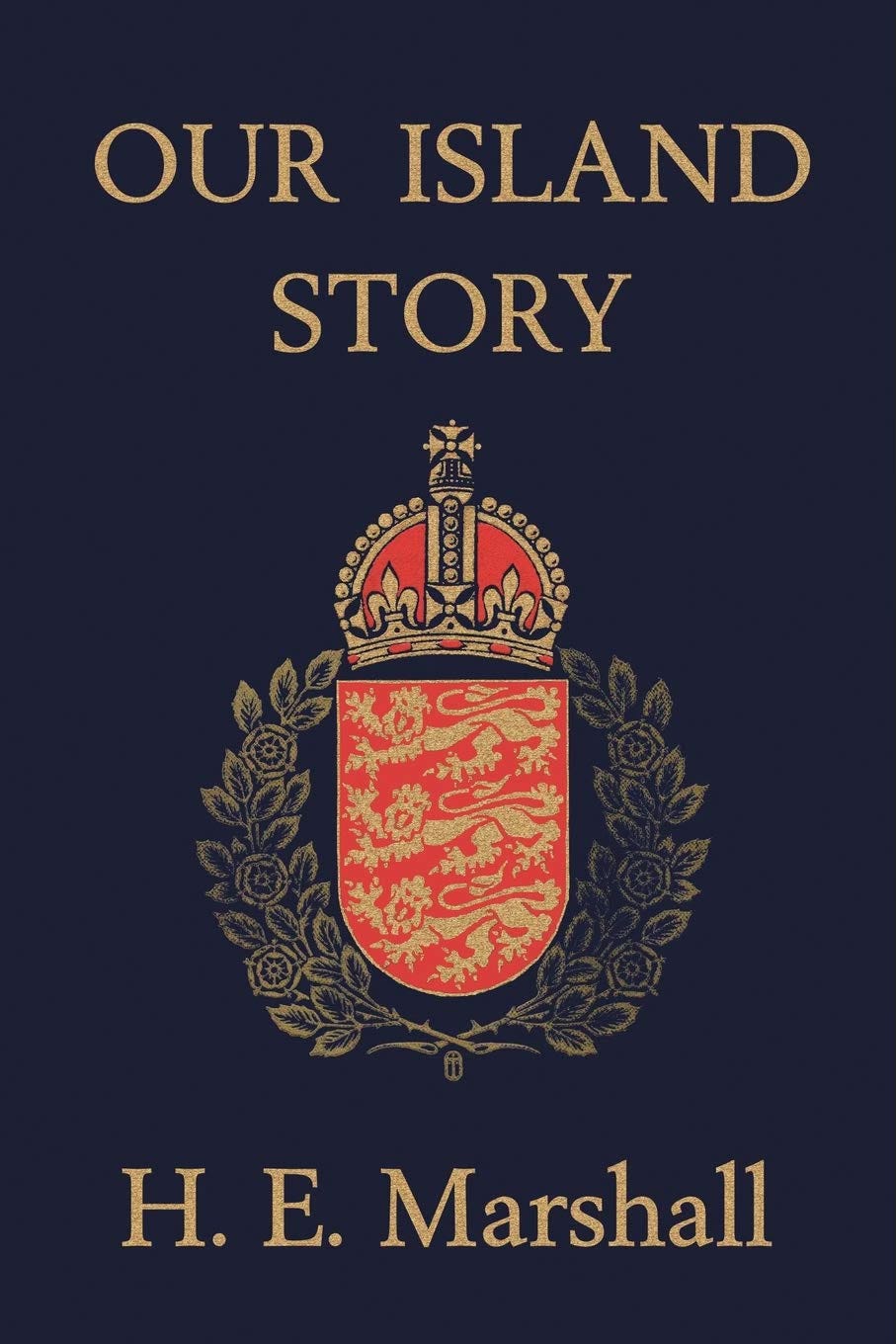The Books That Made Me - Part 1
Books of my Childhood
In the following series of posts I shall discuss several books I read as a child and teenager. It’s easy to critique these books from a twenty first century perspective. They weren’t perfect but these books were my introduction to the world. My taste and values have changed considerably but these books still have a soft spot in my heart - even if that spot is black and bloody from the delusions of colonisation and empire.
Our Island Story: A Child's History of England
HE Marshall
Age first read: 6 years old, circa 1973 in Birmingham, England
Would I let my child read it? Not without, providing an Indian & alternative text on the evils of Empire.
This weighty book with the serious dark blue cover was a gift from our grandparents to my siblings and me. Written by the British author Henrietta Elizabeth Marshall, it was first published in 1905 and tracks the history of Britain from the Romans to Queen Victoria.
I found it inspirational.
A stirring tale of the triumph of British heroism, weaving myth and history together with lovely illustrations. At that time it provided a context for my place in the world, despite the fact I looked nothing at all like the people in the colour plates. There is considerable literary irony that a half Chinese, half English adoptee could find affinity and belonging in this book.
From Chapter 13, The Founding of the Round Table
“In those fierce and far-off days, when men spent most of their time fighting, it was very necessary for them to be brave and strong, in order to protect their dear ones, but they were very often cruel as well and nearly always fierce. Arthur taught people that it was possible to be brave yet kind, strong yet gentle. Afterwards people forgot this again, but in the days of Arthur the fame of his court and of his gentle knights spread far and wide.
“No noble thought himself perfect unless his armor, and clothes even, were made like those of Arthur's knights. No man thought himself worthy of love until, fighting for the right against the wrong, he had three times conquered an enemy.
“Many pretty stories are told of Arthur and his gentle, courteous knights, although they did not learn all their gentleness and their courtesy at once, as you shall hear.”
As you can see the book’s values are simplistic and chauvinistic. We read almost nothing of the darkness of Empire and colonialism. The framing of the British imperial invasion and pillage of India is appalling. I recommend people read William Dalrymple’s The Anarchy and listen to the Empire podcast.
Apparently, David Cameron named it as his favourite childhood book on Desert Island Discs. But this is no Tory manifesto. In amongst the tales of the conquered and conquerors, the text shows how much ‘Great Britain’ is a mix of invaders and ideas. There is no racial or cultural purity here. Great Britain was multi-cultural from the get go. Don’t complain about migrants if you support a colonial empire.
That being said, the text often demonstrates a bias in favour of individual rights and freedoms - as long as you’re English or an obedient subaltern or subject - as well as respect for female rebellion. God bless Boadicea!!
At seven years old this book was exciting and as alien as Narnia and Middle Earth to my daily experience in bland, suburban, middle class Birmingham in the seventies. Nowadays, I see it as problematic, inaccurate propaganda for young minds that provides a foundation for a toxic nationalism and parochialism. Would we have so easily fallen for the delusions of Brexit exceptionalism and the small minded provincialism of Farage, if we were honest about Empire - and listened to the perspectives of the conquered and colonised?
So, would I give it to my kid? Not on your nelly.


